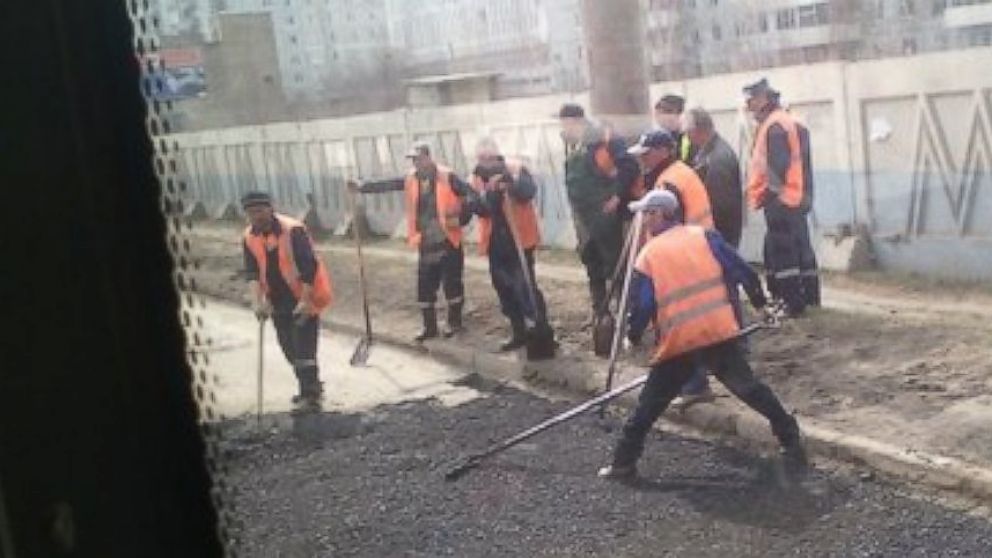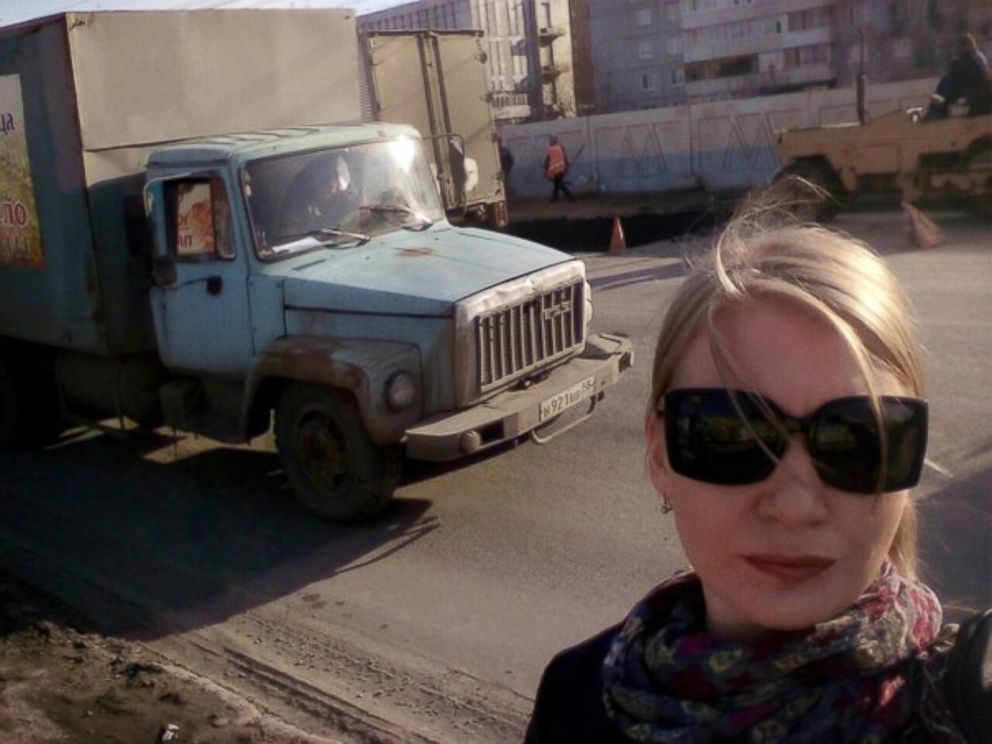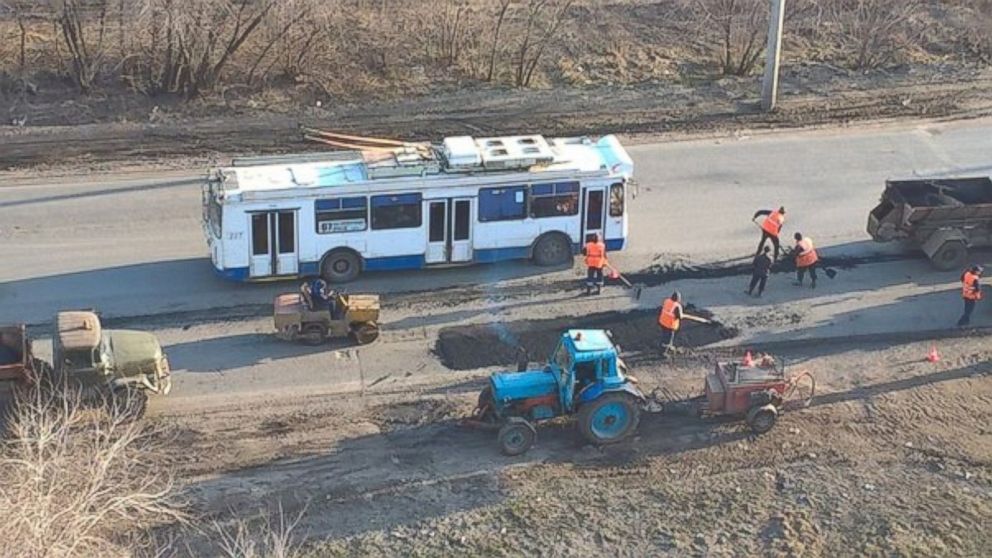Russian Officials Scramble to Fix Problems Told to Vladimir Putin on His Call-in Show
Problems were fixed within hours all over Russia after the show.

MOSCOW -- At the top of Vladimir Putin’s annual call-in show on Thursday, the hours-long telethon during which Putin takes questions from ordinary Russians, Ekaterina Chernenko had a plea for the Russian president.
Speaking by video-call, the resident of the Siberian city Omsk asked if Putin could have the potholed roads in her town fixed, complaining that local officials were doing nothing.
In front of cameras broadcasting the exchange across Russia, Putin agreed with her, saying that the problem had gotten worse generally and noted that it needed to be solved.
Within hours, Omsk’s local authorities announced they had laid 4,000 square meters of new pavement in a single day and poured out 370 tons of asphalt. The city’s mayor appeared on TV to promise they were working night and day on it.
The frantic road-building in Omsk was just one of example of officials across Russia scurrying to fix local issues after they were presented to Putin during his call-in show and that the Russian leader had noted ominously he would be looking into. Criminal cases were opened, delayed wages paid, construction projects halted and launched, all just hours after people mentioned them to Putin on-air.

In Russia’s far east, a governor said he would meet a children’s hockey team that appealed to Putin that they had no indoor rink. The country’s deputy attorney general flew himself to Russia's remote Pacific coast to meet with fishery workers who had told Putin they had been treated as virtual slaves and were owed months of back-pay. Their employer was later shown on TV handing out cash to the women and apologizing.
The flurry of wishes fulfilled is a core feature of Putin’s show every year, where among questions on Syria and the price of milk, ordinary Russians also plead with their president to right wrongs in their towns. Following the highly-choreographed show, law enforcement and media will swoop onto areas noted by Putin, while nervous officials hurry to show they can take a hint.
The show and the televised interventions, for which Russian media sometimes nickname Putin “the good wizard,” are hallmarks of Putin’s personalized rule and have been core props in crafting his public image as the only power that can get things done in a country where people are skeptical of the rule of law and state officials. Russian satisfaction with where the country is headed is at a two-year low, according to recent polls, while Putin’s personal rating remains close to 80 percent.
“It’s was a blitzkrieg,” said Dmitrii Dudkin, explaining why he had gone to Putin to get a wage dispute solved.
Dudkin, a factory worker in Chelyabinsk, said on the show that he and other workers at a car plant were owed months in back-wages, adding he had four children to feed. Before the end of Wednesday, Dudkin said the wages had been paid to him and the plant’s director appeared on television promising to clear its debts.
“It was a quick way to solve the problem,” Dudkin told ABC News by phone.

Observers say the show lets Putin portray himself as at once a powerful ruler and at the same time the caring czar interested in his people’s ordinary troubles. The role tugs on a long cultural thread in Russian history -- into the 20th-century, peasants would write petitions to the czar, convinced he would solve their problems if only his feckless officials didn’t hide them from him.
This year, 3 million Russians sent questions to Putin, state television said, many hoping to win the Putin-lottery and have their problems picked for resolution. But critics argue the practice undermines efforts to improve Russia’s dysfunctional bureaucracy.
“It’s very dangerous because it teaches people that institutions don’t work and that the man at the top is the only hope for getting things done,” said Maxim Trudolubov, a columnist with the Russian business paper Vedomosti.
However, after 14 years of the call-in, Russians aren’t moved by the show much anymore and that everyone understood the rules, Trudolubov said.
“There are actually numerous cases of things not getting done, but no one is bothered because first and foremost it is a show,” he said.
Dudkin, the factory worker who had previously voted for Putin, said he was grateful to his president but wasn’t much fazed by the intervention.
Asked whether he would vote for Putin again now, he said he wasn’t sure yet, he’d have to see how things went.




